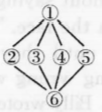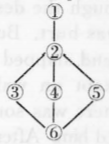When I was in primary school, I had a big fight with a boy in myclass. I can't 1 what it was about, but I have never forgottenthe2I learned that day. I was sure that Iwas right and he was wrong. 3,he strongly believed that I was wrong and he was right. The teacher decided toteach us a lesson.
She4a good idea. She brought both of us tothe front of the class and placed him on one side of her grey desk and me on5. In the middle of the desk was a large, round object(物体).It was6forme to see that it was black. She asked the boy what color the object was."7, "he answered in a loud voice.
I couldn't8that the object was white, thinking thatit was certainly black! One more argument started between the boy and me, thistime9the color of the object.
The teacher told me to go and stand where the boy was standing andtold him to come and stand where I had been. We changed10,and then she asked me what the color of the object was. I11answer,"White." It was then that I knew what was wrong. It was an objectwith two12colored sides, and from his side it waswhite.13from my side it was black.
My teacher taught me a very important lesson that day: You must 14 in other person's position(位置) and look at the15through their eyes in order to trulyunderstand their ideas.
"Paris Bus Tour" gives you one or two days to visit Paris. Get on and off along the tour route(路线)so that you can visit and see Paris at your own plan. See the most of the fantastic view from the open top deck(顶层).It's wonderful. Tickets are for 1 or 2days. You can get on and off as you please.
Adult(成人) | Child | |
1 day | €29.00 | €15.00 |
2 days | €33.00 | €18.00 |
(Children rates apply between 4 and 11 years old. Free for under 4 years old. )
Buses run every 15 to 30 minutes.
Hop-on/Hop-off stops at main(主要的)attractions.
Introduction(介绍)in English and French.
Free earphones for each passenger.
Complete tour duration: about 2.5 hours.
April to October: First bus at 10:00 a. m. and last round trip at 6:00 p. m.
November to March: First bus at 10:00 a. m. and last bus round trip at 4:00 p. m.
There is a story of two friends, Ben and Billy. They got into a fight when they walked through the desert(沙漠), and Ben slapped(扇耳光)Billy in the face.
Billy was hurt. But without saying anything, he wrote in the sand(沙子), "Today my best friend slapped me in the face."
They kept on walking until they found a lake. They decided to take a bath. Suddenly there was something wrong with Billy's leg and he started drowning(溺水), but Ben saved him. After that, Billy wrote on a stone, "Today my best friend saved my life."
Ben was confused and he asked his friend, "After I hurt you, you wrote in the sand, but now, you write on a stone. Why?"
Billy replied, "When someone hurts us, we should write it down in the sand so that winds of forgiveness(原谅)can take it away. But when someone does something good for us, we must keep it in stone so that no wind can ever blow it away."
It is easy to get angry with others, even our good friends or family, when they say no or do things that hurt us. Forgive them and what they do will not hurt us anymore. On the other hand, when someone does something nice for us, remember it. The feeling of thankfulness can give you a lifetime of happiness.
Many parents agree that kids should learn to do chores. But how manychores should children do? It depends on their ages. Below is a guide to help.
At two or three years old, the chores will need to be very basic(基础的).When you do the dishes, you could have your child dry the bowls orplates with a kitchen towel. A 2-3-year-old could also help you set the dinnertable, pick up the pillow from the floor.
At five years of age, some examples of chores include(包括) putting books away on the shelf, putting toys away, helping tofold clothes, helping to put away dishes, washing and cutting vegetable( with asafe knife), and feeding pets.
At eight years of age, you can increase the difficulty of chores. Bynow, they can sweep floors, learn how to do their own washing, pack a lunch boxand even learn how to make their own lunch.
As children get older, into the 10-1l years of age, they can startdoing bigger chores, like cleaning the toilet, making some meals for the family,and do the dishes.
Anyway, you know your children best. You can decide what they shoulddo as long as there is a balance(平衡) between learningskills and making sure of safety.
 B .
B .  C .
C .  D .
D . 
With the development of economics(经济), theproblem of left-behind children(留守儿童) has become aserious social(社会的) problem. More and more people have realizedwe should do something to help them.
One of the biggest problems is that the children are all hunger forthe love from their parents. Many of them can just get a call or a letter fromtheir parents half a year, a year or even several years, which makes somechildren lose their parents' faces. When they meet their troubles, theyhave no one to talk with. Nobody gives them enough care.
Because of being too far away from their parents, the left-behindchildren's study is the second biggest problem. From a survey(调查)about their study, only two percent of the children get goodresults, while ten percent of them are common and eighty-eight percent of themare poor. What a pity!
There are also many other problems of the left-behind children, suchas having no ability to protect themselves, unhealthy lifestyles, spending toomuch pocket money and being crazy about Internet and so on.
In a word, to solve all the problems of the left-behind childrenneeds the government, families and schools to try their best together.
How do you stay warm during the cold winter? People in northern China have public heating systems(供暖系统). People in the south turn on air conditioners(空调). But how did people stay warm in the past?
Northern people had the kang, a type of bed. It was made of bricks(砖). There was a stove(炉子)connected to the bed, When you lit the stove, the bed became hot. Was there anything better than hot bedding in the cold winter?
Different from the north, people in the south had blanket warmers. The tangpozi was a round pot. It was made of copper(铜). Parents usually filled it with hot water and put it inside a quilt. When children went to bed, they could feel the warmth of the pot.
The honglong was another warmer in different places in the south. It was a small round pot with charcoal(木炭)inside. There was a bamboo basket that held the pot. You could take it anywhere. The best part of it was that you could bake some nuts inside. What a great time to talk with friends when enjoying delicious food!
How people warm themselves in winter | ||
Now | In the past | |
In China | Public heating systems | Kang: It was made of bricks. The became hot when you lit the stove. |
In southern China | Air conditioners | Tangpozi: It was a round pot made of copper. People it with hot water and put it inside a bed. |
Honglong : It had charcoal inside. A bamboo held the pot. You could bake some nuts in it. | ||
Last Sunday, Bob had a special experience because he met an (事故). On that day, all his classmates (自愿做) to clean up the city parks except him, because he missed his grandmother very much. She was very old and lived (独自;单独) far away from the town. On the way there, when he was walking, a car came fast and (撞,击)an old man. However, the driver didn't stop to help the poor old man. (代替,反而), he went away. The old man was (躺)on the road and couldn't move. Bob was (彻底地,完全地)shocked. As there was nobody else on the road, he (领会,认识到) he had to call the police quickly. The police took the man to hospital and the old man was saved by the doctor. As a result, Bob got to his grandmother's home a bit late. After hearing the (事实,实情), his grandmother smiled and said, "You are a clever and kind boy. You saved the man because of your right (决定)."
Life is not easy, but I'd like to say, "When anything happens, believe in yourself."
When I was young, I was nervous that I couldn't talk to anyone. My classmates often (laugh) at me. I was sad but could do nothing. Later, something happened. It changed my life. It was English speaking competition. My teacher asked me (take) part in it. I was afraid that. But my teacher encouraged(鼓励)me and we talked many topics(主题). At last, we chose the topic "Believe in yourself". I tried my (good) to remember the speech and practiced it over 100 (time). I could hardly believe my ears when I (hear)the news that I won. I got the (one) prize!
| To: Li Hua |
| From: Tom |
| Dear Li Hua, I am so worried these days. My mom asks me to take some after-school classes during the summer holiday. But I want to spend more time volunteering at an animal hospital. I argued with my mom and I feel sorry now. What do you think of after-school classes? Can you give me some advice? Do you have any plan for your summer holiday? I'm looking forward to your reply. All the best, Tom |
注意:
⑴词数80左右;
⑵开头和结尾要适当得体,回复须包括文章所有要点,可适当发挥;
⑶文中不得提及真实的人名、校名等相关信息。
Dear Tom,
I'm sorry to hear that. ▲
Li Hua